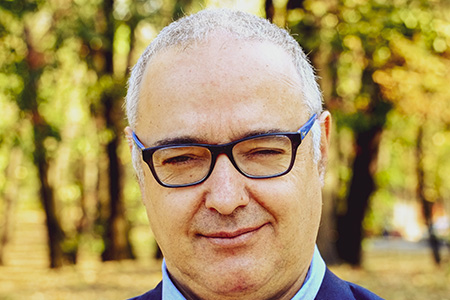By Zoran Pavlovic, M.D.
 Mentioned for the first time in the Old Testament of the Bible as “Elijah fatigue,” burnout syndrome (BOS), or simply burnout, has been linked to several health, mental health, and well-being indicators, including increased worry, sadness, sleep problems, alcohol intake, cognitive impairment, and neck and back discomfort. It is characterized by decreased engagement, low productivity, job dissatisfaction, and work absences attributed to being sick.
Mentioned for the first time in the Old Testament of the Bible as “Elijah fatigue,” burnout syndrome (BOS), or simply burnout, has been linked to several health, mental health, and well-being indicators, including increased worry, sadness, sleep problems, alcohol intake, cognitive impairment, and neck and back discomfort. It is characterized by decreased engagement, low productivity, job dissatisfaction, and work absences attributed to being sick.
WHO HAS BOS?
A recent survey of the psychological impact of COVID-19 on leaders (categorized as CEOs, executives, and functional managers) experiencing lockdown revealed that overall, 42% of participants reported high levels of burnout with increased prevalence among female leaders when compared to their male colleagues (47% vs. 40%). Moreover, 61% of young leaders (aged 24-38) experienced a high level of burnout symptoms compared to only 36% of the leaders over the age of 50.
Nowadays, BOS overdiagnosis is common. The following represent some mental conditions that might be mistaken for BOS:
STRESS
Unlike acute stress, which pushes us out of our comfort zone and requires a temporary effort that can help us grow and achieve the desired goal, burnout is a response to extended, chronic, excessive stress that leaves us mentally and physically drained, cynical, detached, and less effective in completing job-related tasks. A sense of urgency, over-engagement, and hyperemotionality are typical signs of stress. In contrast, burnout is associated with a loss of motivation and drive, disengagement, and a feeling of emotional bluntness.
DEPRESSION AND ANXIETY
Most organizational health specialists and burnout experts agree that BOS is a specific, stand-alone construct related exclusively to the workplace context. In contrast, major depressive disorder or MDD (the most common type of depression) and generalized anxiety disorder (GAD) are context-free.
Diagnostic criteria for MDD and GAD include specific duration of typical symptoms, while BOS diagnosis does not have this requirement. Importantly, by diminishing emotions, burnout primarily impacts the quantity of emotional response, whereas depression and anxiety affect the quality of emotions (manifested as sadness in depression or worry in anxiety disorder).
If you experience some symptoms that I mentioned previously, you may want to check yourself (one source is https://www.mindtools.com/pages/article/newTCS_08.htm, although this is not a diagnostic tool) before contacting your physician or therapist.
HOW TO BEAT BOS
Here are some tips which, if continuously practiced, might increase your resilience and help you avoid BOS:
- Approach work with high intent to contribute and low attachment to the outcome.
- Practice detachment, so you can increase your ability to keep issues in perspective, and compassion, so you can be sensitive to others’ needs.
- Have high expectations, but don’t strive to improve on what currently works.
- Be attentive to other people’s feelings while being detached enough not to absorb them.
- Focus on solutions rather than problems.
- Be compassionate to yourself by practicing loving- kindness meditation.
- Avoid general mindfulness but, instead, choose what you are mindful about.
Zoran Pavlovic, M.D. is an independent consultant on neuroscience projects to the life sciences industry and a certified coach providing solutions related to chronic stress management, burnout prevention, and resilience to executives.
“Burnout is associated with a loss of motivation and drive, disengagement, and a feeling of emotional bluntness.”

Nessun commento:
Posta un commento